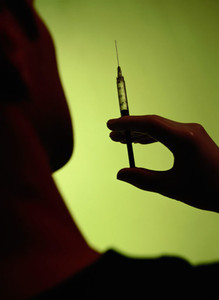Humphreys et al. published a narrative review article concerning the administration options and the economic considerations of biosimilar pegfilgrastim in supportive cancer treatment in the US to maximize patient benefit[1].
Febrile neutropenia is a serious complication of myelosuppressive chemotherapy, with potentially fatal outcomes and a high economic burden. International guidelines recommend the administration of long-acting granulocyte colony-stimulating factors such as pegfilgrastim for prophylaxis of febrile neutropenia.
Because pegfilgrastim is a biological, the high cost associated with biologicals can be a limiting factor to accessing care; biosimilars can provide a more affordable treatment option. Six pegfilgrastim biosimilars are approved in the US, and use of these biosimilars can result in significant savings. In a 2021 report, it was suggested that in the absence of biosimilar competition, the average sales price of reference pegfilgrastim would have been expected to increase by ~96%. However, some barriers to biosimilar use have been identified, such as drug rebate walls, challenges associated with Medicare reimbursement, and confusion about interchangeability between the originator and the biosimilar.
Different administration options for pegfilgrastim are available to accommodate individual patient preferences. Although next-day pegfilgrastim administration is indicated by the US Food and Drug Administration and current guidelines, minimizing the number of clinic visits is also important during the COVID-19 pandemic. Three options are available to reduce the number of clinic visits for next-day pegfilgrastim administration. One option is next-day self-administration by the patient or caregiver; however, barriers to self-injection include needle phobia, impaired manual dexterity, and using incorrect self-injection techniques. The second option is the use of an on-body injector (OBI) to deliver pegfilgrastim ~27 hours after chemotherapy, which is ideal for patients unable to self-administer. Unfortunately, reports of OBI failure (estimated rates between 1.7% and 6.9%) complicate use, and costs can be high because a biosimilar pegfilgrastim version delivered via OBI is not available. Same-day injection of pegfilgrastim (off-label) is another administration option that could be preferable for patients unable to self-inject and who are uncomfortable having an OBI attached to their skin. However, same-day use must be weighed against the potential for increased risk of febrile neutropenia in certain settings.
The choice of pegfilgrastim administration option should be based on the patient’s specific needs, while considering mitigating factors such as the risk of COVID-19 and the cost. Patients with cancer are generally at increased risk of infection compared with healthy individuals; therefore, the number of outpatient visits should be minimized. Pegfilgrastim biosimilars are important treatment options to minimize the financial burden on patients and the healthcare system during the COVID-19 pandemic and beyond.
Conflict of interest
The author of the research paper, Sophia Humphreys, has received honoraria from Coherus BioSciences and Mylan for speaking engagements unrelated to the current study.
Abstracted by Sophia Humphreys, Sutter Health, Sacramento, CA, USA.
Editor’s comment
Readers interested to learn more about biosimilars in oncology are invited to visit www.gabi-journal.net to view the following manuscript published in GaBI Journal:
Biosimilars in oncology: current and future perspectives
GaBI Journal is indexed in Embase, Scopus, Emerging Sources Citation Index and more.
Readers interested in contributing a research or perspective paper to GaBI Journal – an independent, peer reviewed academic journal – please send us your submission here.
GaBI Journal Citation Impact
2.2 – CiteScore 2021 (calculated on 5 May 2022)
2.5 – CiteScoreTracker 2022 (Last updated on 5 January 2023)
Submit a manuscript to GaBI Journal
Related articles
New and upcoming biosimilars launches in the US
FDA approves biosimilar pegfilgrastim stimufend
Totality of evidence for biosimilar pegfilgrastim Ziextenzo
|
LATIN AMERICAN FORUM
The new section of the ‘Latin American Forum’ on GaBI has been launched. The objective of this new section is to provide you with all the latest news and updates on developments of generic and biosimilar medicines in Latin America in Spanish. View the latest headline article: Reino Unido actualiza su directriz para permitir la intercambiabilidad de biosimilares Browse the news in the Latin American Forum! Register to receive the GaBI Latin American Forum newsletter. Inform colleagues and friends of this new initiative.
FORO LATINOAMERICANO
Se ha lanzado la nueva sección del ‘Foro Latinoamericano’ sobre GaBI. El objetivo de esta nueva sección es brindarle las últimas noticias y actualizaciones sobre desarrollos de medicamentos genéricos y biosimilares en América Latina en español. Ver el último artículo de cabecera: Reino Unido actualiza su directriz para permitir la intercambiabilidad de biosimilares !Explore las noticias en el Foro Latinoamericano! Regístrese para recibir el boletín informativo GaBI Foro Latinoamericano. Informe a colegas y amigos sobre esta nueva iniciativa.
|
Reference
1. Humphreys SZ, Geller RB, Walden P. Pegfilgrastim biosimilars in US supportive oncology: a narrative review of administration options and economic considerations to maximize patient benefit. Oncol Ther. 2022. https://doi.org/10.1007/s40487-022-00207-2
Permission granted to reproduce for personal and non-commercial use only. All other reproduction, copy or reprinting of all or part of any ‘Content’ found on this website is strictly prohibited without the prior consent of the publisher. Contact the publisher to obtain permission before redistributing.
Copyright – Unless otherwise stated all contents of this website are © 2023 Pro Pharma Communications International. All Rights Reserved.








 0
0











Post your comment